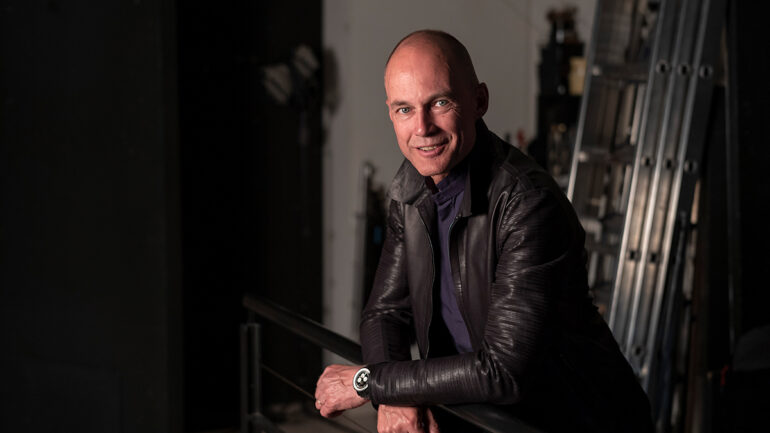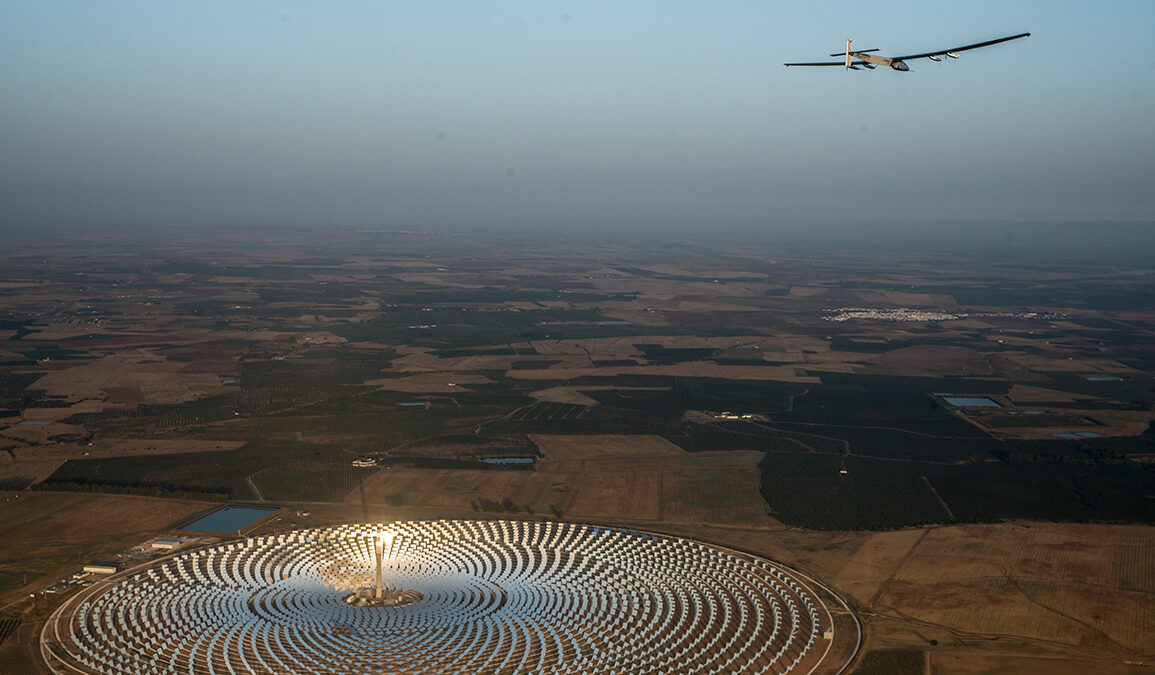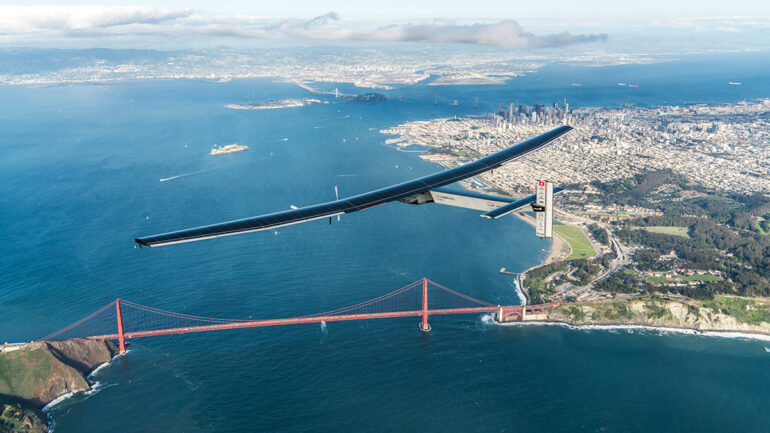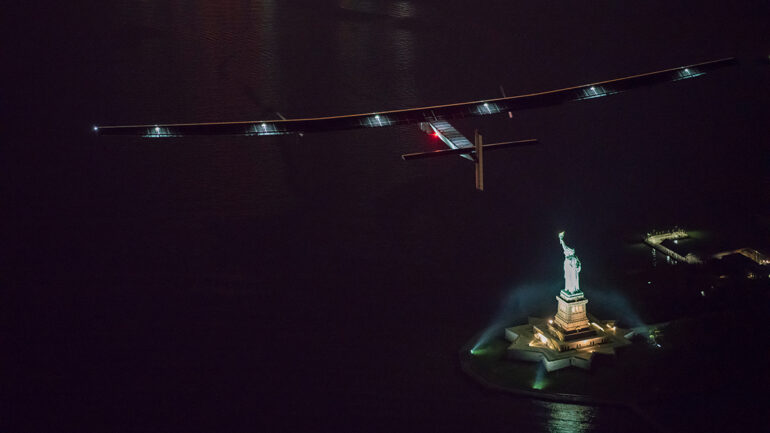The Philanthropist: You have compiled 1000 solutions that contribute efficiently and profitably to slowing global warming. What was the biggest challenge: That the solution is profitable or that it makes an efficient contribution against global warming?
Betrand Piccard: We didn’t have too much difficulty in finding solutions that have a clear benefit for the environment and are financially profitable. The difficult part, however, was to find technologies that are available right now. That is a crucial aspect of my mission: to promote solutions that can be implemented immediately, rather than futuristic prototypes that might work in a decade or in half a century. Because it will be too late, already.
TP: How can the solutions be implemented across the board?
BP: I am a firm believer that strong policies are needed to make a leap forward in fighting the climate crisis. Of course, technological solutions are important. But to succeed and implement them at the speed and scale which are required, we need to make sure that environmental laws, regulations and incentives pull these innovations to the market. We cannot afford to wait for these solutions to enter our daily lives, but rather ask governments and international organizations to make things happen faster, and on a much larger scale.

TP: How did you reach the small and large companies so that they could take part in the campaign?
BP: We have a devoted team in charge of reaching out to solutions all over the world. We also partner with many organizations in the sustainability sector, such as incubators, accelerators, and innovation networks, such as the International Cleantech Network, Cleantech Group and others, or the Horizon 2020 programme from the European Commission. They helped us in spreading awareness about the Label. Besides, the round-the-world solar flight brought Solar Impulse into the spotlight as it was followed by millions of people, so many companies came to us directly to be part of this new mission.
TP: What are the next steps you are taking with the Foundation?
BP: With the Foundation, we are focused on scaling the adoption of these clean technologies. To do so, we are working on multiple projects. First, we are developing the Solutions’ Guide, a search tool which will allow anyone to find environmental solutions tailored to their specific needs. We are also working on Cleanprints, which are in-depth reports for a given industry, sector, city, region or country with recommendations for applicable solutions , as well as an indication of where regulations can be modernized to allow for a more ambitious deployment of the solutions. Finally, we aim to support solutions in finding investment opportunities by matching them with the right investors.
That is a crucial aspect of my mission: to promote solutions that can be implemented immediately.
Betrand Piccard
TP: There are more and more organizations, companies and foundations that deal with the topic of sustainability. Does that make the work of your foundation easier or is it more of a competitive situation?
BP: The fact is that our Label is the only evaluation available today which certifies the profitability of technologies that protect the environment. So, strictly speaking, we don’t have much competition. But when it comes to tackling climate change, I believe there can only be collaboration, as we share the same goal. Of course, we want our message to be heard, but we are convinced that what other organizations do is complementary with what we do. We will not win this on our own, that’s for sure.
TP: You inspire people with your pioneering work. How important is it to reach people on an emotional level when it comes to a topic like climate protection?
BP: As a psychiatrist, I know how crucial it is to talk to people’s hearts and minds. Because climate change isn’t just about 1, 2 or even 5°C that we will add to our thermometers. It’s about what we, the human species, are capable of building together: a better system that works for everyone rather than the few, where people can thrive, living in harmony with their environment while being able to live a comfortable life, a system in which we don’t accept that there are so many people and animals suffering. While it is important for people to know what’s happening, it is much more effective to motivate them through solutions and a prospect to look forward to — this can motivate them to become actors of change.
TP: Your father campaigned for the protection of seas and lakes by exploring the deep sea. What role does knowledge play in motivating people to behave in a more climate-friendly manner?
BP: Knowledge was indeed crucial in both my father’s exploration, when he discovered life in the deep sea and prevented nuclear waste from being dumped into the ocean, as well as in my grandfather’s expedition, when he became the first man to enter the stratosphere and invented the pressurized cabin. They both taught me the importance of learning and experiencing. In fact, my mission with the Solar Impulse Foundation and the 1000 Solutions Challenge is also deeply connected to knowledge, as I am not the one who invented these 1000 solutions, but I am trying to make them more known to the people who should be using them.
TP: The Solar Impulse project was at the origin of the foundation. How did the idea for this come about?
BP: Actually, I can remember very precisely the moment where I decided to focus on the identification of technological solutions. While I was flying in Solar Impulse, I was looking at the sun that was running my four electric motors with huge propellers, there was no noise, no pollution, no fuel, and I could fly forever. This experience seemed futuristic. But soon, I realised that I was not in the future; on the contrary, I was in the present, using what today’s technologies could offer. This is when I understood that the rest of the world is in the past; in old polluting and inefficient systems, such as internal combustion engines, badly insulated houses, outdated systems of heating and cooling and inefficient grids. So, I decided to focus on promoting the clean and efficient technologies that are available today. And that’s how the idea for the #1000Solutions Challenge came about.
Read more:
Solar Impulse Foundation: Exploring Efficient Solutions





